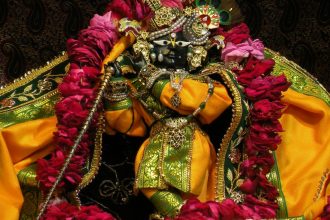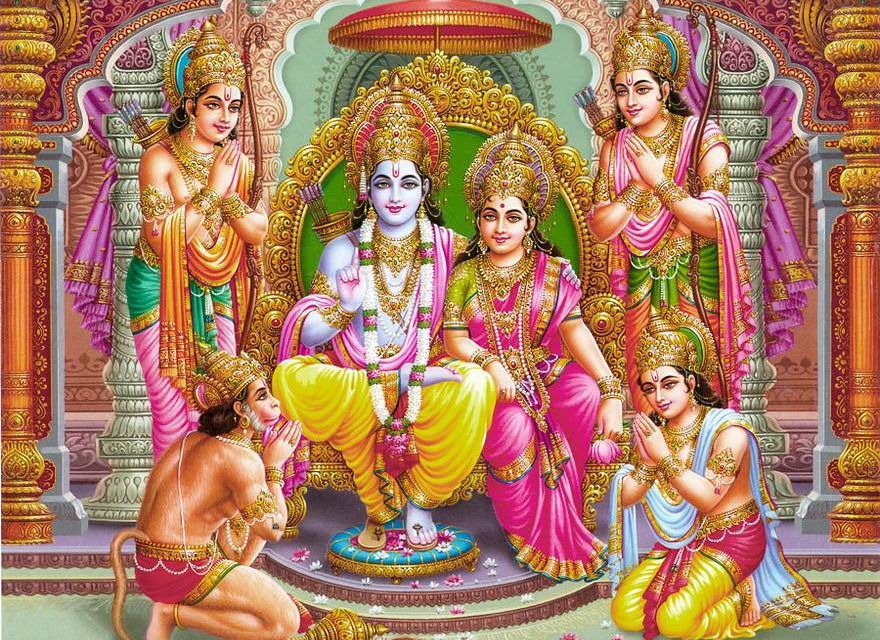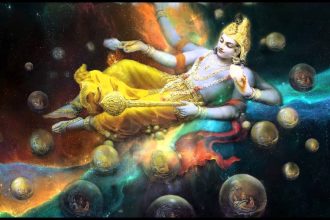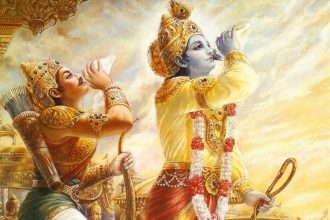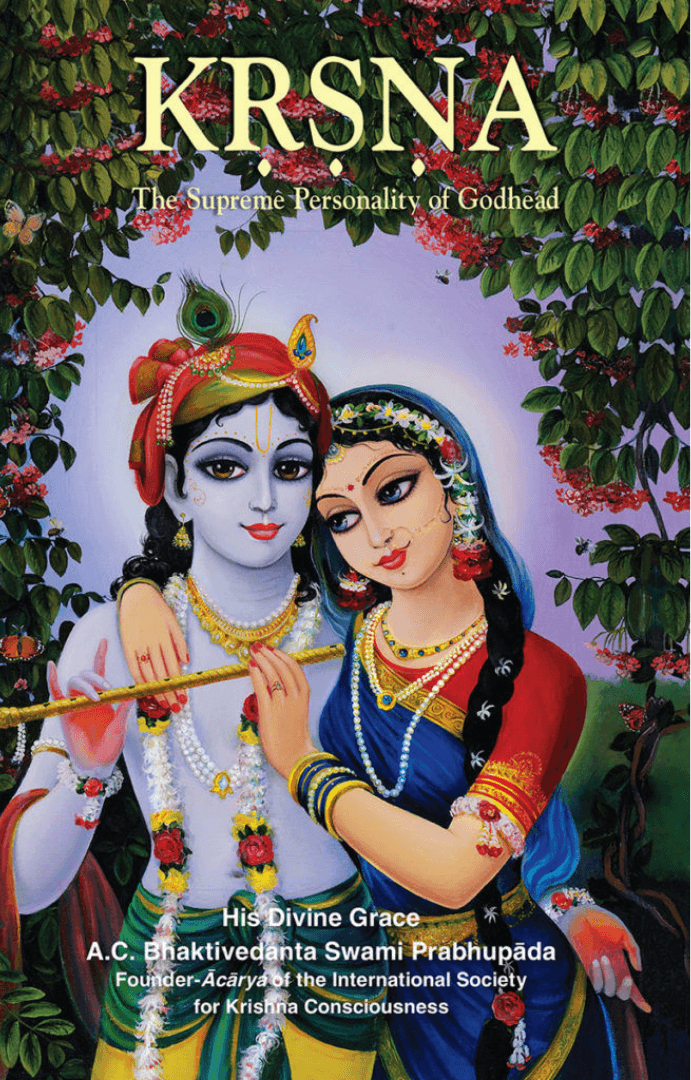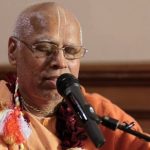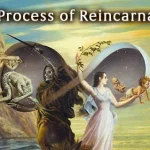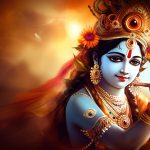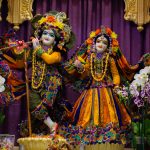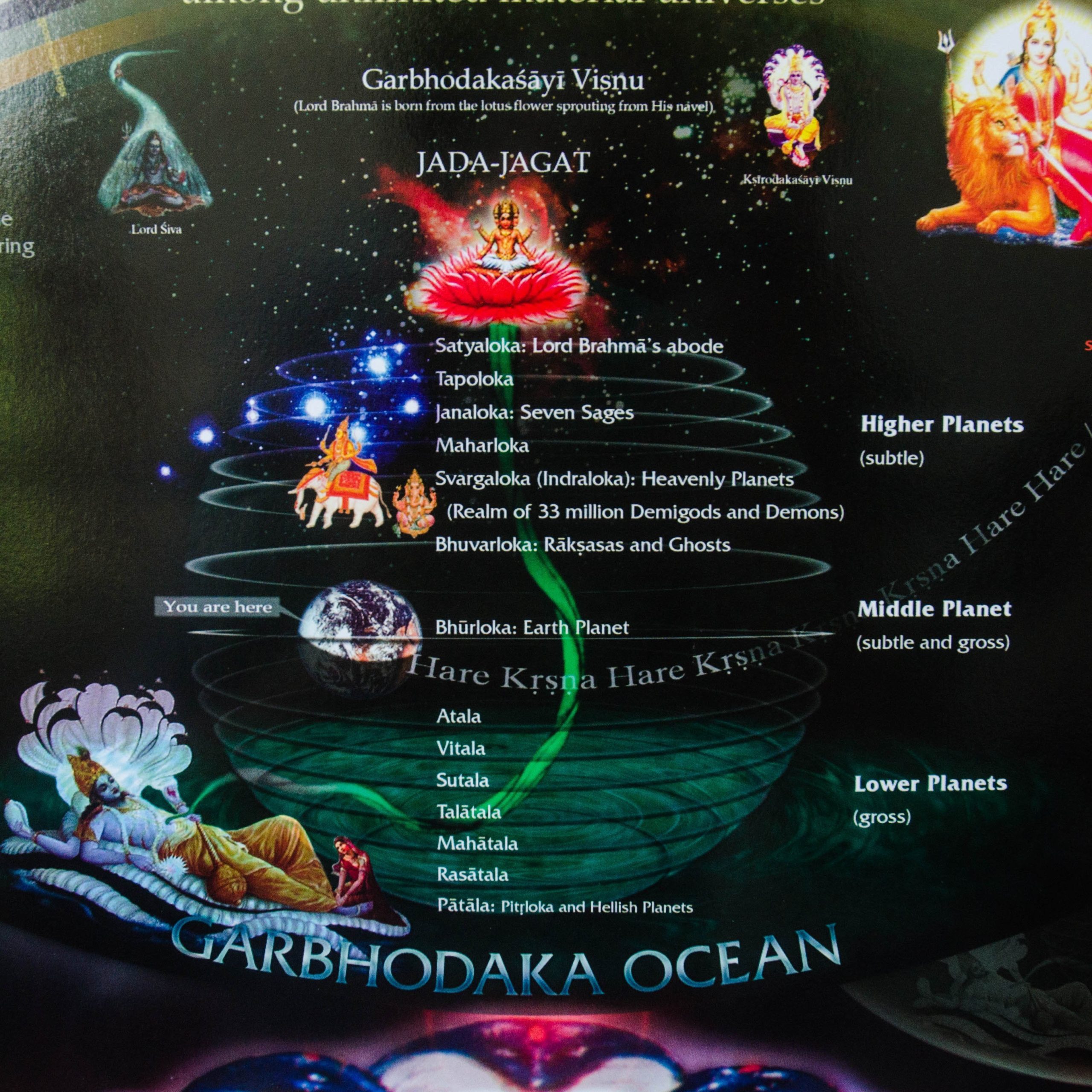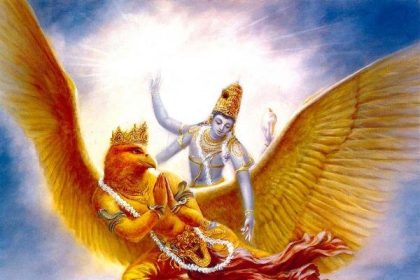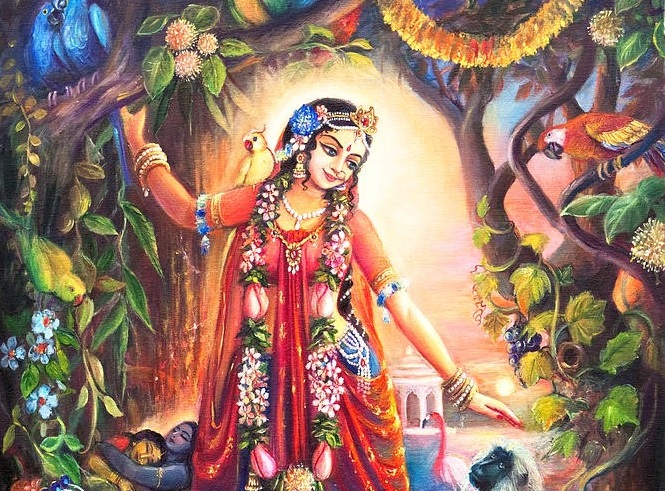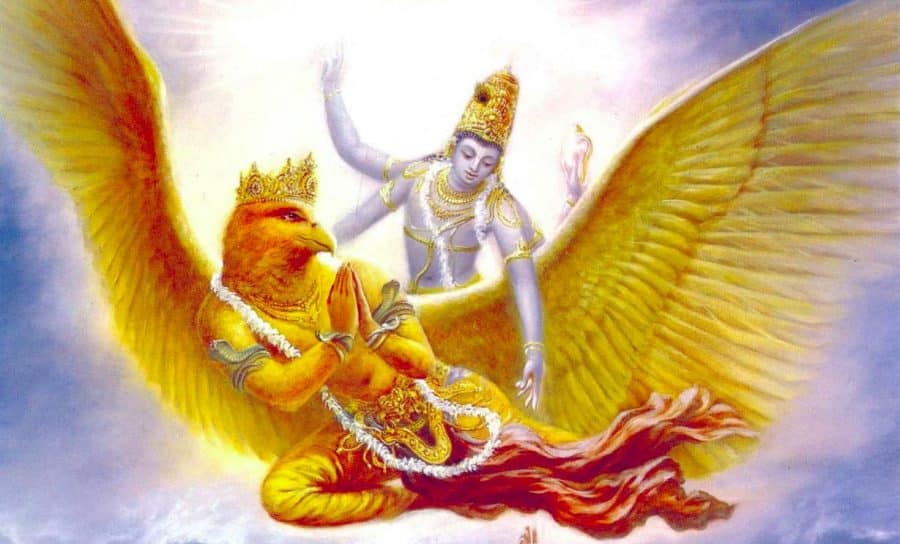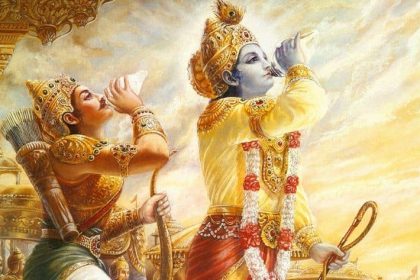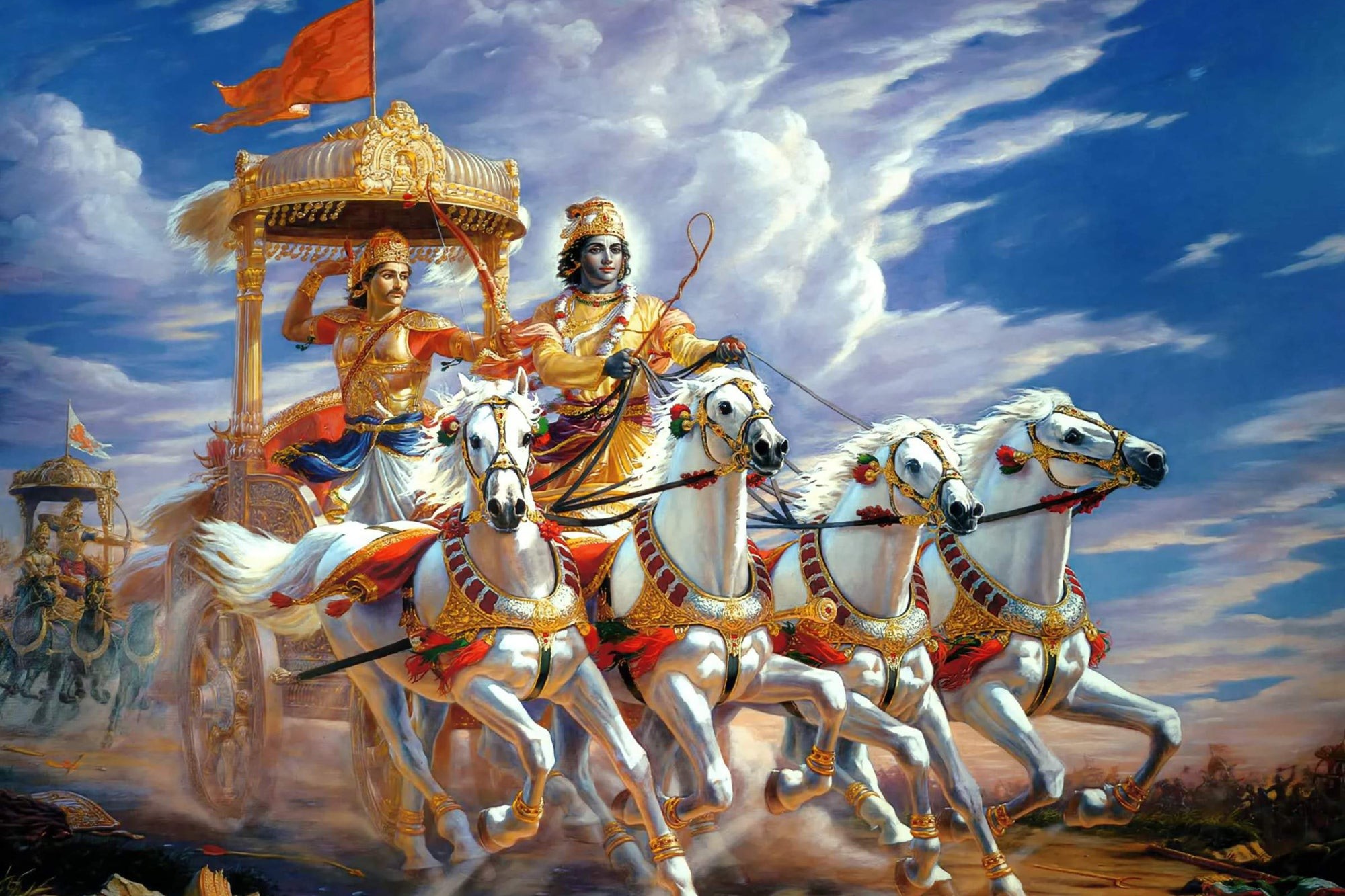Although Kṛṣṇa was the real son of Vasudeva and Devakī, because of Kaṁsa’s atrocious activities Vasudeva could not enjoy the birth ceremony of his son. But Nanda Mahārāja, the foster father, celebrated the birth ceremony of Kṛṣṇa very joyfully. The next day, it was declared that a male child had been born to Yaśodā. According to Vedic custom, Nanda Mahārāja called for learned astrologers and brāhmaṇas to perform the birth ceremony. After the birth of a child, the astrologers calculate the moment of the birth and make a horoscope of the child’s future life. Another ceremony takes place after the birth of the child: the family members take baths, cleanse themselves and decorate themselves with ornaments and nice garments; then they come before the child and the astrologer to hear of the future life of the child. Nanda Mahārāja and other members of the family dressed and sat down in front of the birthplace. All the brāhmaṇas who were assembled there on this occasion chanted auspicious mantras, according to the rituals, while the astrologers performed the birth ceremony. All the demigods are also worshiped on this occasion, as well as the forefathers of the family. Nanda Mahārāja distributed to the brāhmaṇas 200,000 cows, which were well decorated with cloth and ornaments. He gave the brāhmaṇas not only cows in charity but also hills of grain decorated with ornaments and golden-bordered cloth.
In the material world we possess riches and wealth in many ways, but sometimes not in very honest and pious ways, because that is the nature of accumulating wealth. According to Vedic injunction, therefore, one should purify such wealth by giving cows and gold in charity to the brāhmaṇas. A newborn child is also purified by gifts of grain in charity to the brāhmaṇas. In this material world it is to be understood that we are always living in a contaminated state. We therefore have to purify the duration of our lives, our possession of wealth and our self. We can purify our duration of life by taking daily bath and cleansing the body inside and outside and accepting the ten kinds of purificatory processes. By austerities, by worship of the Lord, and by distribution of charity we can purify the possession of wealth. We can purify our self by studying the Vedas in order to understand the Absolute Truth and achieve self-realization. It is therefore stated in the Vedic literature that by birth everyone is born a śūdra, that by accepting the purificatory process one becomes twice-born, that by studying the Vedas one becomes a vipra, which is the preliminary qualification for becoming a brāhmaṇa, and that when one perfectly understands the Absolute Truth he is called a brāhmaṇa. And when the brāhmaṇa reaches further perfection, he becomes a Vaiṣṇava, or a devotee.


